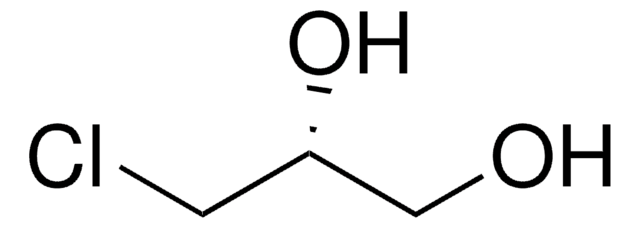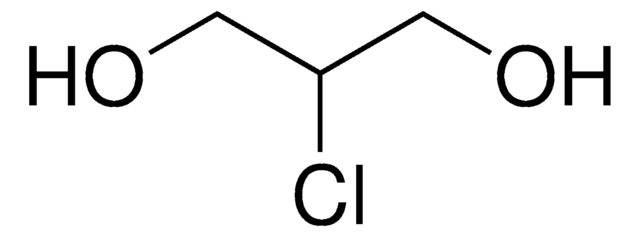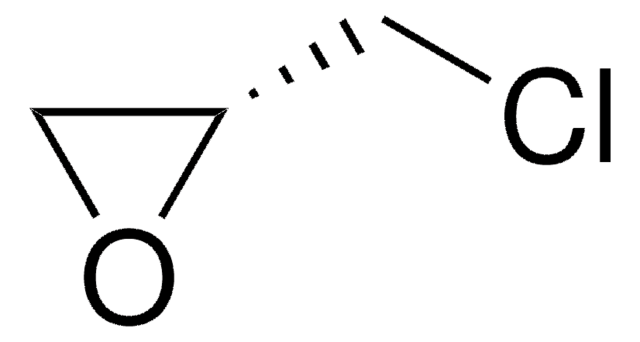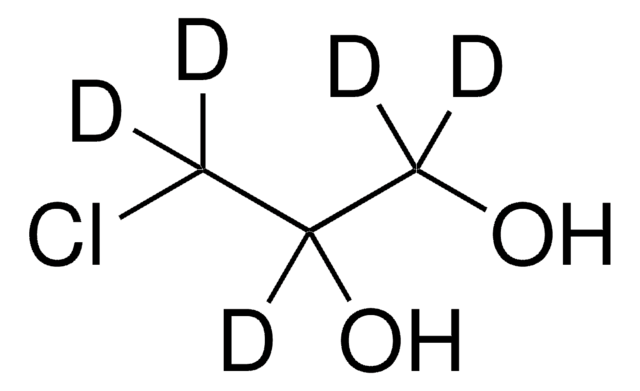540064
(S)-(+)-3-Chloro-1,2-propanediol
97%, optical purity ee: 97% (GLC)
Synonym(s):
(S)-α-Glycerol chlorohydrin
About This Item
Recommended Products
Quality Level
Assay
97%
optical purity
ee: 97% (GLC)
refractive index
n20/D 1.480 (lit.)
bp
213 °C (lit.)
density
1.322 g/mL at 25 °C (lit.)
functional group
chloro
hydroxyl
SMILES string
OC[C@H](O)CCl
InChI
1S/C3H7ClO2/c4-1-3(6)2-5/h3,5-6H,1-2H2/t3-/m1/s1
InChI key
SSZWWUDQMAHNAQ-GSVOUGTGSA-N
Looking for similar products? Visit Product Comparison Guide
Legal Information
Signal Word
Danger
Hazard Statements
Precautionary Statements
Hazard Classifications
Acute Tox. 3 Oral - Acute Tox. 4 Dermal - Eye Dam. 1
Storage Class Code
6.1C - Combustible acute toxic Cat.3 / toxic compounds or compounds which causing chronic effects
WGK
WGK 3
Flash Point(F)
235.4 °F - closed cup
Flash Point(C)
113 °C - closed cup
Personal Protective Equipment
Choose from one of the most recent versions:
Already Own This Product?
Find documentation for the products that you have recently purchased in the Document Library.
Customers Also Viewed
Our team of scientists has experience in all areas of research including Life Science, Material Science, Chemical Synthesis, Chromatography, Analytical and many others.
Contact Technical Service








